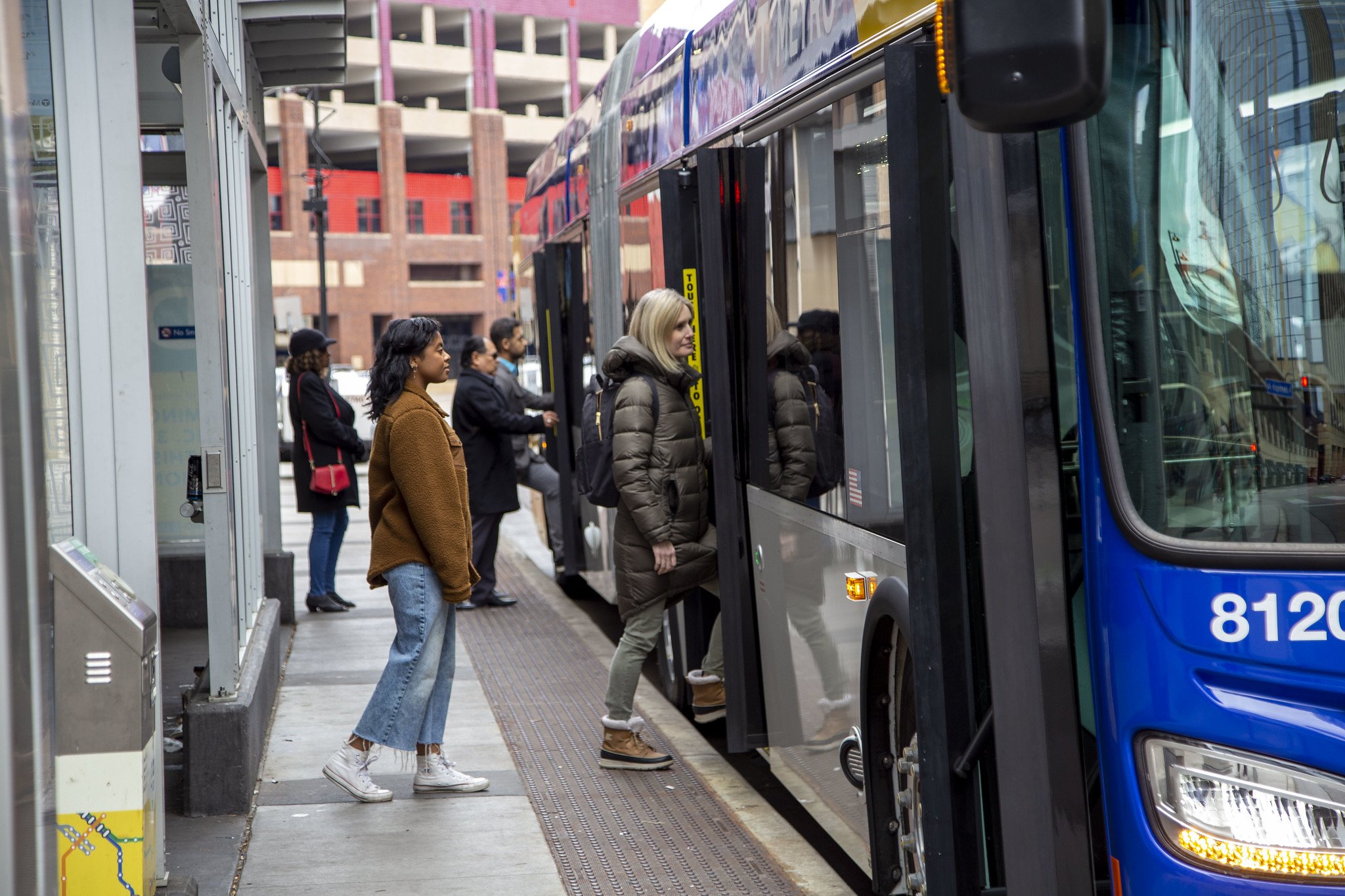
In November, more than 90 people attended hiring events to apply and interview for bus operator positions – the most activity we’ve seen at events like these in more than two years.
This is a hopeful sign that interest in becoming a bus operator is on the rise. But, today, we are about 300 bus operators short of where we need to be to offer about the same amount of service we did before the pandemic began.
To maintain reliable service as hiring efforts continue, service on many routes is being reduced on Saturday, Dec. 3. A summary of these changes is available here.
We’ve received a lot of questions about these service changes. Below is a snapshot of our current situation, and a look at what we’re doing to build back.
How many operators do you have, and how many do you need?
• As of November 2022, we are about 70 full-time bus operators short of where we need to be to reliably support existing service levels. The budget allows for 1,400 full- and part-time bus operators and there are around 1,100 today. (Part-time operators work morning and afternoon shifts on weekdays, or on weekends; job seekers are invited to apply for part-time operator roles, however full-time operators are the greatest need.)
• There are several reasons we have fewer operators, including historically low unemployment, retirements, internal promotions, and a temporary pause in operator hiring at the beginning of the pandemic.
What are you doing to recruit new operators?
• Starting pay for new bus operators was recently increased to $26.16. The hiring bonus for new operators with Commercial Drivers Licenses (CDLs) is $5,000; a $3,000 bonus is provided to successful applicants who need to earn a CDL permit while training with us.
• We are hosting monthly operator hiring events where job seekers can apply and interview in one visit. Applicants who pass the interview will receive a conditional offer on the same day. The next hiring events are Saturday, Dec. 3, and Wednesday, Dec. 7.
• By the end of this year, we plan to start an industry-leading program that will allow job seekers who do not have a CDL to start as conditional, paid employees while we help them prepare for and earn their CDL permits. Obtaining a CDL is a common stumbling block for applicants.
• We have restarted a program that trains operators to serve as ambassadors/recruiters, attending outreach and hiring events throughout the region.
• We are promoting the bus operator position as a pathway into Metro Transit to build a career, whether it is behind the wheel of a bus or by moving into support and supervision (examples here).
• Efforts to improve public safety on transit are being made through the implementation of the Safety & Security Action Plan. The plan includes many actions related to supporting operators, such as de-escalation training.
How will the December service changes help?
• Combined, the December service changes will reduce service by about 8% and the full-time operator requirement by 80 operators. Service is being reduced more than the current operator deficit because many employees retire at the beginning of the year.
• Reducing the number of operators needed to provide service means there is less chance trips will be unexpectedly cancelled when operators cannot come to work due to illness or other reasons (extra operators are on standby to fill in as needed). This also provides resiliency in the system when winter weather events impact roads and our ability to stay on schedule.
• In October, about 1% of scheduled trips (1,547 out of 169,443 trips) were cancelled. By comparison, reliability has suffered elsewhere when service has not been adjusted to match the workforce.
• The METRO D Line’s opening on December 3 will bring more reliable service to the corridor now served by Route 5, our busiest bus route. Largely replacing local bus service with BRT service benefits customers and operators with a minimal impact on operator requirements.
What about light rail?
• Today, we have about 90 train operators. We would need about 40 more train operators to increase light rail frequency from its current 15-minute service.
• We are now inviting individuals who are not already Metro Transit bus operators to apply for train operator positions. Applications for the current posting are being accepted through Sunday, Dec. 11. The starting wage rate and hiring bonuses are the same as those provided to bus operators.
How are service decisions made?
• Service changes are informed by ridership and knowledge of customer demand and travel patterns.
• We have also sought to maintain service in areas where there are few or no alternatives and to minimize impacts on low-income residents, renters, those who have no or limited access to personal vehicles, and communities of color. Find more on our commitment to equitable service here.
What happens next?
• It takes about five weeks for operators to complete their training. We are hopeful that increased interest will mean we can begin adding some service back in 2023.
• We plan to build a public process in 2023 that gathers feedback on our framework and values used to make decisions with limited resources, acknowledge service suspensions and reductions that have been made in the past couple years, and creates a plan prioritizing service to be added in the next five years.
What can people do to help?
• The most important thing anyone can do to help today is to encourage people to become operators. Find more information at metrotransit.org/drive.
• Continued feedback about trip preferences is also helpful – email [email protected] or call 612-373-3333.